Luz has always enjoyed working with her hands, being in nature, and getting dirty. Farming is a natural fit. As a self-employed cabinet-maker and gardener, she continues to follow her interests in self-sufficiency by learning to farm at the Center for Arkansas Farms and Food. After completing the CAFF Farm School program, Luz would like to have a hobby farm with her husband and someday build an agrihood or be a part of one.
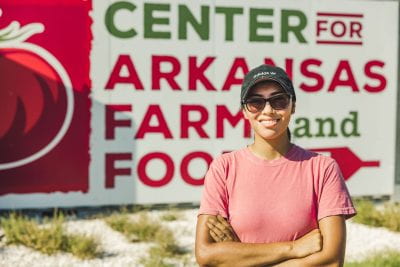 Her dream is spot-on with current trends. The term “agrihood” was coined in 2014 by a property development company in California. It refers to a community built around a central farm that provides fresh food for the residents. These types of properties were developed in response to the increasing farm-to-table trend. There is also a desire for a simpler life and to live closer to the land for many who must reside in cities and suburbs for work. According to Forbes, there are currently about 100 agrihoods in the U.S., with plans for many more. The first agrihood in Arkansas, Red Barn, was developed in 2019 in Bentonville.
Her dream is spot-on with current trends. The term “agrihood” was coined in 2014 by a property development company in California. It refers to a community built around a central farm that provides fresh food for the residents. These types of properties were developed in response to the increasing farm-to-table trend. There is also a desire for a simpler life and to live closer to the land for many who must reside in cities and suburbs for work. According to Forbes, there are currently about 100 agrihoods in the U.S., with plans for many more. The first agrihood in Arkansas, Red Barn, was developed in 2019 in Bentonville.
It’s a lifestyle that appeals to Luz, who goes by “Lucy.” She loves farming and the farm life but thinks doing it solo can be isolating. For Lucy, the dynamic changes altogether when farming with a group of co-workers. “Farming with others can be encouraging. It connects you to nature and other people. You talk to each other as you work together. You form relationships.” Farming together has always been a natural way to build relationships, friendships, and community. It was an important aspect of the way people lived and survived decades ago in close-knit rural communities, relying on each other and the land.
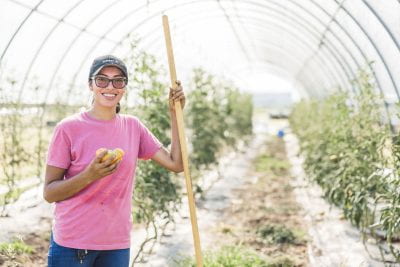
Community is important to Lucy. Her family immigrated to the United States from Mexico at the age of ten. She has lived in Arkansas since then, it’s home. Before applying for the CAFF Farm School, Lucy had only gardened, with no actual farm experience. She currently works part-time at Middle Fork Farm in addition to her studies at the CAFF teaching farm in Fayetteville. Lucy continues to work as a carpenter, building custom cabinets. She is doing a lot but enjoys learning to farm and is confident her hard work will pay off. For Lucy, it provides more than financial rewards, “Farming requires a lot from you physically and mentally, but it’s worth it. It gives you a sense of purpose and makes you appreciate the food on your table more.”
What surprised her the most about farming is that there are so many methods. It’s more complex than she thought. “Plants require more than just water, sun, and soil. I was surprised by what it can take for a plant to thrive.” She says. Next is a CAFF Farm Apprenticeship, she hopes, saying she needs more farm knowledge. “There is much more to learn, and I want to continue learning all I can.”
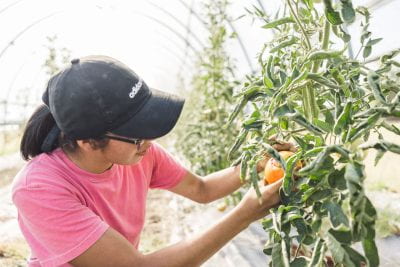
She is encouraging when asked what advice she can give to anyone considering farming or the CAFF Farm School. “I think anyone who desires to grow their food should look into it even if you aren’t planning to have a production farm someday and don’t have land. You can start in your backyard growing food for yourself.” She also recommends talking to farmers and asking them about their experiences. Go to events like Beers with Farmers and get involved in the farming community. You can do this, even living in the city or the suburbs.”
The CAFF Farm School is an eleven-month program that teaches students to grow vegetables, fruits, and herbs on very little land with sustainable methods. The program is currently accepting applications for Farm School 2023. Applications close soon, on September 30th, 2022. CAFF also has a Farm Apprenticeship program and Beginning Farmer Classes. Applications for the Farm Apprenticeship Program in 2023 are open until December 1, 2022. More information is available on the CAFF Farm School and other farming programs at LearnToFarm.org.
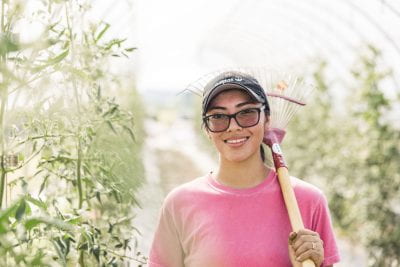
CAFF is located in Fayetteville, Arkansas, a rapidly growing metro area. More farmers are needed to feed the future population and provide food security for the regional food system. The center for Arkansas Farms and Food (CAFF) aims to increase the number of thriving farms and farmers in the state, especially in the NWA region, where demand is high. CAFF is part of the University of Arkansas System, Division of Agriculture, in partnership with the Walton Family Foundation.

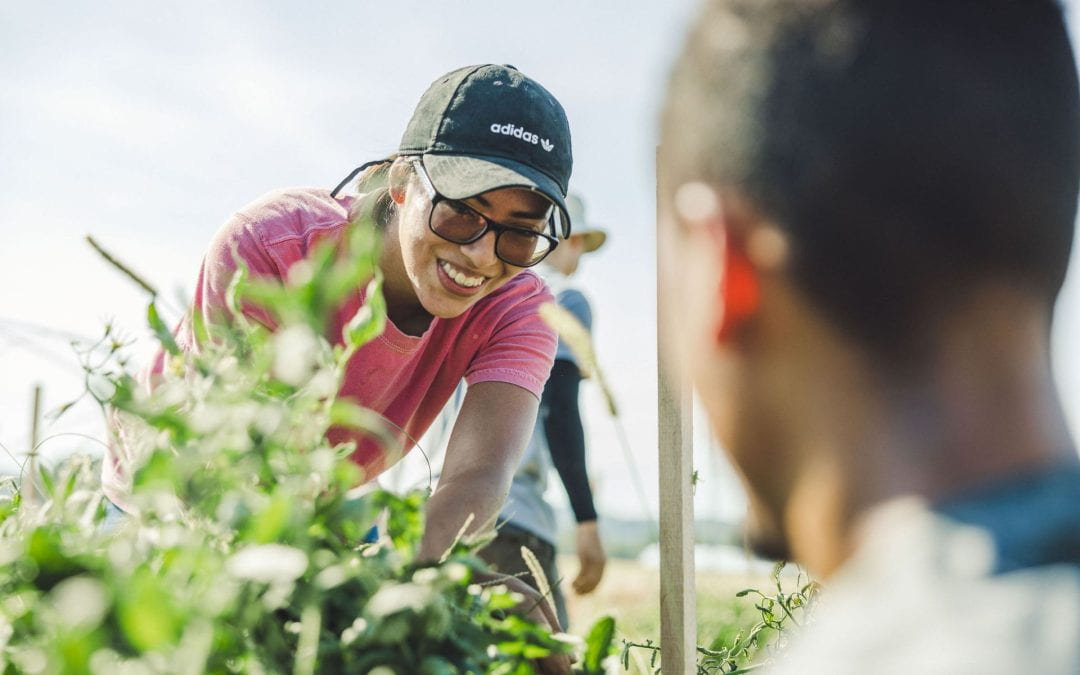
Recent Comments